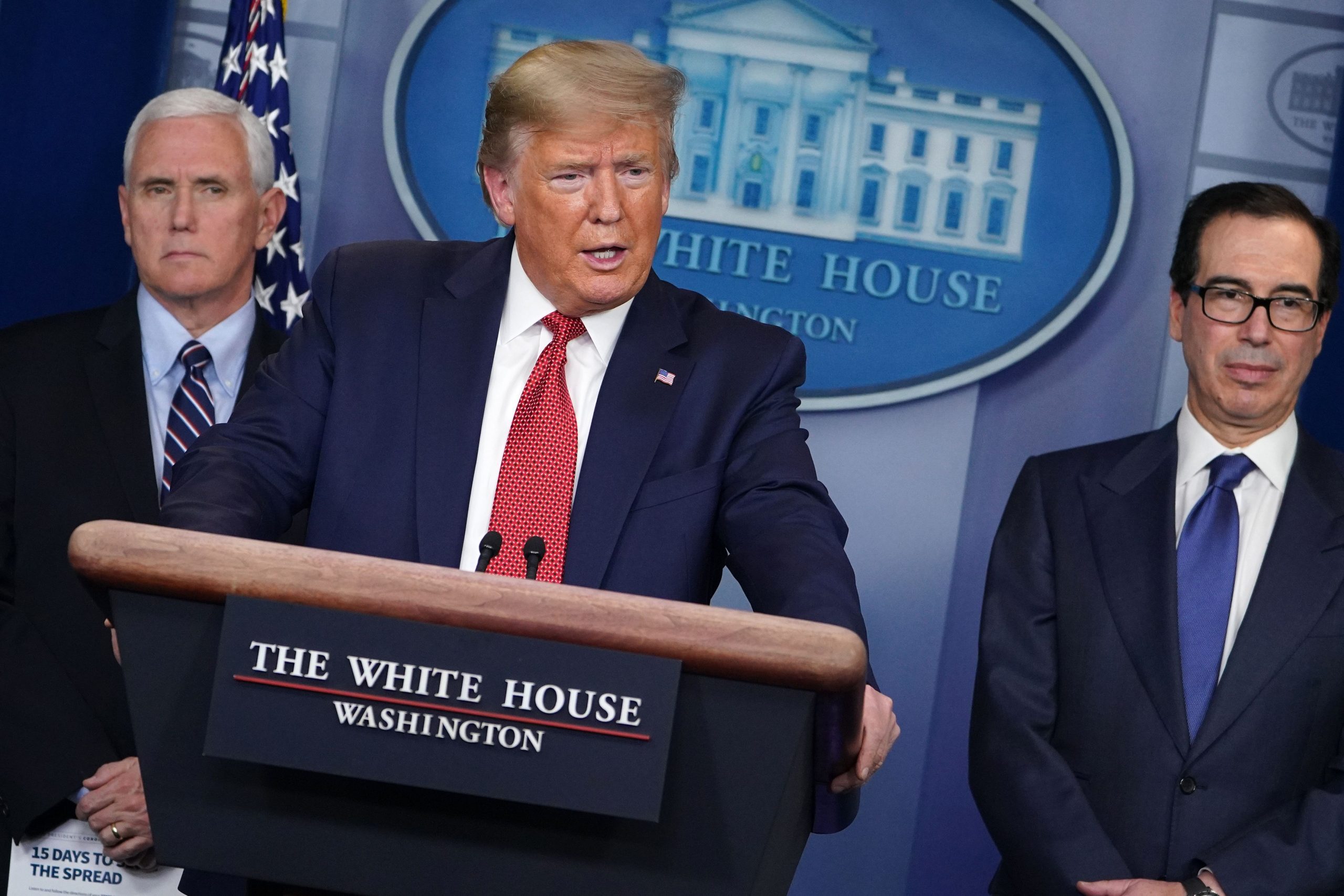A Heinous Jobs Report, and Trump’s Path Forward

WASHINGTON — So who’s ready for nine more months of 2020?
The movement back to harmony is not inevitable. Congress is likely to weigh more rocket fuel for America’s suddenly beleaguered economy in the face of the latest Thursday.
With the latest numbers, the U.S. has doubled a record set just last week, with 6.6 million unemployment claims, up on the 3.3 million recorded last week, a ghastly surpassing of the previous high water mark—695,000 in autumn 1982.
It’s not great. Ten million Americans, that we know of, have lost their jobs in two weeks.
It remains necessary, if only for the soul, to avoid hyperbole. It’s not even clear, yet, that America is in a technical recession. If the best scenarios come to pass, negative economic growth could be contained to a quarter, or perhaps two.
But a prolonged recession — into July, August and September — would likely be poison to the White House, to say nothing of the American people. The month of April appears to be a write-off, as President Donald Trump has abandoned his Easter goal for resumption of business.
The question is if some relaxation in May is too grandiose an ambition.
Take a look at overhead imagery of the American metros most fanatically fighting the crisis: New York, San Francisco, Seattle and Los Angeles. If the sight of an abandoned highway 101 in LA is any indication, America is about to, truly, embark on a silent spring.
Senior economic advisors to the president, namely Treasury Secretary Steve Mnuchin and economic advisor Lawrence Kudlow, frequently contrast the 2020 troubles with the crisis of 2008. Three weeks ago, there was nothing inherently rotten about the U.S. financial system itself, goes the argument. Unlike in ’08, if anything, America stood poised to import a recession from a slackening international economy, not export a cancer, as it did twelve years ago. It’s certainly imported COVID-19.
Accordingly, it’s quietly argued in administration circles, the United States, more suburban, (slightly) less elderly and more innovative than East Asia and Europe, will be back on its feet by at least autumn, if not midsummer.
But how far away that looks now.
In some ways, it could be the most momentous American April in one-hundred and fifty-five years, the one that ended the Civil War, but claimed the lives of Abraham Lincoln and his thespian assailant John Wilkes Booth, while installing the feckless Andrew Johnson to heal a wounded nation. Or fast-forward eighty years–or rewind seventy-five—to the April that claimed both FDR and Hitler.
The worst has not yet come to pass, but there is a sense that America stands before a revised future.
Trump’s poll numbers, at first cascading but now potentially poised to careen, are almost besides the point. The president’s clear, central legacy has been a recalibration on China. Rare in Trump’s Washington, the maneuver has been met with bipartisan support.
Now, a potential doubling-down is his best chance of expanding that legacy into a second term.
Trump, the consummate bully, could use those powers for good, by countermanding Mitch McConnell and establishment Republicans, and working with Nancy Pelosi to pass a badly-needed revamp of America’s infrastructure. It’s high time the president realizes his own party is a witch with a poison apple. Much of the brass won’t care if he’s gone in January. Presumably, he does.
That will take abandoning another personal relationship, with Chairman Xi.
“I think the race in November is purely Trump vs. the media, Trump vs. China,” Greg Barbaccia, Palantir’s former head of intelligence and investigations, and a former U.S. Army intelligence specialist, told me Thursday morning. “It’s just the absolutely perfect opportunity. China has a plan for everything. Made In China 2025. This is to show the world China cannot be trusted. Here is a public, human event we can point to.”
But hardliners in Trump’s cabinet should knock it off—reports of fanatical, anti-Iranian maneuvers by Secretary of State Mike Pompeo and National Security Advisor Robert C. O’Brien are distressing.
Such dispatches were seemingly confirmed by the president’s tweeting Wednesday: “Upon information and belief, Iran or its proxies are planning a sneak attack on U.S. troops and/or assets in Iraq. If this happens, Iran will pay a very heavy price, indeed!” Maybe so.
But I think it’s clearer that it’s Trump who would pay a heavy price for taking his eye off a war at home, by risking a new one abroad.
Comments